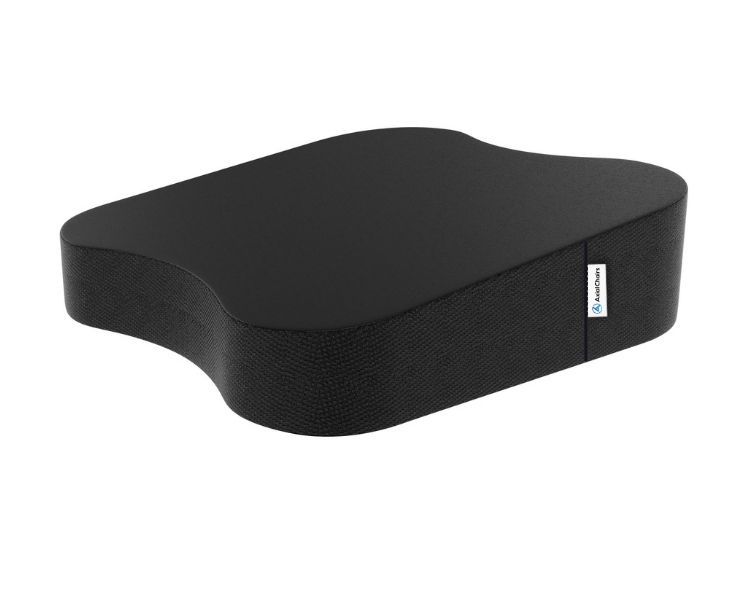As a doctor, I have seen countless patients struggling to cope with the effects of chronic back pain. It can be debilitating and interfere with daily life, affecting both physical and mental well-being. One of the most difficult symptoms that people in chronic pain may suffer from is nausea; it affects concentration, energy levels, moods and even digestion. In this blog post, we will look at why some people who experience back pain find themselves feeling nauseous – and what you can do to manage this side effect if it is something you are dealing with.
As a general rule, back pain and nausea can resolve on their own within weeks. If the pain persists, seek medical attention. Likewise, seek prompt treatment if nausea lasts or worsens over time, as persistent symptoms may indicate a serious medical condition.
What Is Nausea and How Is It Related to Back Pain?
Nausea is an unpleasant sensation that can make someone feel like they are going to vomit. It is usually accompanied by other symptoms such as stomach discomfort, abdominal cramping, dry retching, and a feeling of unease or weakness. Nausea can be caused by many things including some types of back pain. For example, nerve impingement in the spine may cause nausea due to inflammation or irritation of the nerves or muscles associated with it. In addition, herniated discs may compress nerve roots which can then lead to nausea and other unpleasant symptoms.
All Day Comfort & Support
Axial Ergonomic Seat Cushion® | Seat Chair Wedge
Quick Guide: A 30-Second Summary

All Day Comfort & Support
Product Name
Axial Designs™ Seat Cushion
Price
$149
Warranty
1 Year
Type
Posture Wedge
Top Layer
100% Natural Latex (Molded)
Bottom Layer
High-Density Foam
Top Material
Isometric Grippy Vegan Leather
Bottom Material
Non-Slip Material
Side Material
3D Breathable Fabric
Causes of Nausea as a Symptom of Back Pain
Nausea is not always associated with back pain but when it occurs together there could be a few causes for it. The most common reason for nausea related to back pain is nerve issues involving the spine such as herniated discs, spinal stenosis, and pinched nerves. These conditions can cause inflammation or compression of the nerves in the spine which can lead to nausea along with other symptoms like numbness and tingling sensations. Other potential causes could include muscle spasms in the back causing pressure on nearby organs such as the stomach or small intestine which could also cause nausea.
Severe Conditions That May Cause Nausea, Vomiting, and Abdominal Pain along with Back Pain
There are certain medical conditions that can cause severe back pain accompanied by nausea, vomiting, and abdominal pain such as appendicitis. Appendicitis occurs when there is inflammation around the appendix which leads to severe abdominal pain radiating into your lower right side along with nausea and vomiting. Other serious conditions include kidney stones which typically present with flank pain on one side accompanied by nausea and sometimes vomiting due to their effects on nearby organs like the intestines; this type of condition usually requires medical attention right away if any signs of kidney stones are present along with these other symptoms.
Upper Back Pain and Kidney Stones: A Reviewed Health Connection
There have been studies done looking into how closely connected upper back pain is linked to kidney stones; although not everyone who has suffered from kidney stones will experience upper back pain caused by them, some people do report experiencing upper backache as part of their symptom complex from having them. This connection between kidney stones and upper backache isn’t completely understood yet but it may be due to kidney stone deposits in parts of the body that are close enough for them to create tension on tendons and ligaments around these areas leading to localized stiffness in certain muscles. This type of condition should be evaluated by a doctor so they can ensure proper treatment for both problems since managing both at once may be necessary depending on what’s going on medically with each problem individually.
The Link Between Appendicitis and Lower Backache Accompanied by Nausea
Appendicitis is an inflammatory process that occurs around the appendix; it’s usually accompanied by severe abdominal pains located around your lower right side near your navel area that may radiate into your lower right side along with fevers. Nausea is another common symptom experienced during this process so it’s important for you to recognize any signs you might have if this applies to you especially if you experience any changes in your lifestyle such as loss of appetite or feeling weaker than usual. If you experience any combination of these symptoms along with lower backache then you should seek medical attention immediately as appendicitis can become life-threatening without prompt treatment.
Treating Nausea Caused by Back Pain With Diet Adjustments And Muscle Relaxants
The most important factor when treating any type of health condition related to nausea caused by back pain should involve finding out why exactly this happening so that a proper strategy for treatment can be determined accordingly. Depending on your diagnosis then various treatments are available ranging from medication adjustments diet alterations lifestyle interventions physical therapy exercises relaxation techniques massage therapy chiropractic care heat/cold therapy acupuncture injection therapies minimally invasive surgical procedures etc. When combined these treatments will provide relief from both chronic neck/backaches as well as improvements in overall quality health depending on how problematic each issue itself has become over time.
Why Do I Feel Nauseous When My Back Hurts?
It is normal to feel nauseous when your back hurts. This can be due to a variety of causes, including muscle strain, injury, infection, or even a pinched nerve. Nausea can be caused by a number of factors associated with back pain, including inflammation and irritation of the nerves in the lower back. A herniated disc is often caused by the discs in the spine becoming compressed or bulging and can cause severe pain along with nausea.
Is it normal for lower back pain to make you feel nauseous?
Infections of the spine can also lead to both back pain and nausea; these infections tend to be more serious as they typically involve infection deep into the spinal tissue. Other health conditions that might cause both back pain and nausea include appendicitis, kidney stones, stomach ulcers, gallstones, and certain forms of cancer.
Issues related to poor posture or repetitive motion can cause muscular strain resulting in both back pain and nausea as well. It is important to visit your doctor if you are experiencing these symptoms for an accurate diagnosis. Treatment for these ailments usually involves some form of restorative practice such as physical therapy or minimally invasive surgery. Pain management strategies such as acupuncture or massage may also offer some relief from both the pain and nausea symptoms caused by back problems.
When it comes to any type of health issue, prevention is always key; maintaining good health habits such as proper posture while sitting or standing for prolonged periods of time will help avoid future problems with neck and spine pain which may result in nausea as well. Regular exercise should help keep muscles toned while managing stress levels through relaxation techniques like yoga will further reduce the chances of developing any kind of issue related to your health. When it comes down to it, taking care of yourself is essential for maintaining healthy body functioning which should keep your symptoms at bay!
Is it normal for lower back pain to make you feel nauseous?
It is possible for lower back pain to make someone feel nauseous, although it is not common. Nausea can be caused by a wide range of medical conditions, including several that can cause back pain. Pinched nerves and herniated discs can both cause lower back pain and potentially lead to nausea as well.
Can a pinched nerve make you nauseous?
Pinched nerves in the spine occur when there is pressure on a nerve root, either due to inflammation or a slipped disc. The resulting pressure on the sensitive nerve fibers can cause pain, tingling and numbness in addition to nausea. Herniated discs occur when the cushion between two vertebrae slips or bulges out of place, causing irritation and pain. This can also put pressure on surrounding nerves which could result in feelings of nausea or vomiting.
In most cases, the feeling of nausea associated with any type of back pain should dissipate within 24-48 hours with rest and proper treatment. If your nausea continues for more than 48 hours or worsens, you should seek immediate medical attention as this could indicate a more serious underlying condition such as an infection or appendicitis. Other symptoms that may require medical attention include fever, severe pain, increased vomiting and changes in health status such as weight loss.
When experiencing any type of back pain it is important to consult a healthcare provider for proper diagnosis and treatment recommendations tailored to your specific condition. Depending on the severity of your symptoms, treatments may vary from medications like muscle relaxants and pain relievers to physical therapy or minimally invasive surgery to repair herniated discs or other spinal problems that are causing discomfort and nausea. Being aware of potential causes of both back pain and nausea will help you better understand what steps you need to take towards finding relief from your symptoms so you can improve your overall health.
Can a herniated disc make you nauseous?
Yes, a herniated disc can make you nauseous. This is because when the intervertebral disc in your spine is damaged or bulging out, it can cause compression of the surrounding nerve roots and blood vessels. This compression can lead to inflammation and can cause nausea, back pain, neck pain, stomach pain, and other symptoms such as vomiting. In some cases, a herniated disc can also cause severe pain that radiates down one or both legs.
If left untreated, a herniated disc may worsen and can result in long-term and even permanent damage to the nerves it compresses. It is important to seek medical attention if you are experiencing any kind of symptoms that could be caused by a herniated disc in order to get an accurate diagnosis and receive appropriate treatment. Treatment options range from lifestyle modifications such as exercise or physical therapy to minimally invasive treatments like epidural injections or surgery. Healthline Media further notes that medications such as nonsteroidal anti-inflammatory drugs (NSAIDs), muscle relaxants, narcotic analgesics, antidepressants, and anticonvulsants may also be prescribed to relieve pain associated with herniated discs.
Summary
Chronic back pain can be incredibly debilitating and have a huge effect on those who suffer from this condition. Unfortunately, nausea is an all-too-common symptom that many chronic back pain sufferers have to regularly manage. While there isn’t one clear answer about why these two conditions are so closely linked, it is important to take note of the potential causes, triggers and solutions discussed in this post. If you are experiencing bouts of nausea as a result of your back pain, speak to your doctor about it – they may be able to provide you with more targeted advice on how to best manage its symptoms. Moving forward, in order to minimise the risk of your chronic back pain leading to episodes of nausea, strive to take care of yourself and invest in a healthy lifestyle: nourish your body with wholesome foods, stay hydrated and get enough rest. With persistence and dedication, we can work together towards reducing the distressing effects that chronic back pain can cause.





